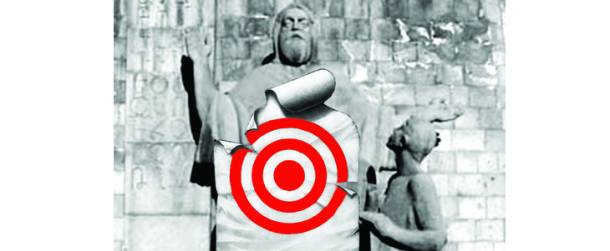Bury the `Law on Language’ – deeper than the deepest Khor Virab
On 20 April 2010 the Armenian Government laid before Parliament legislation to alter the existing national `Language Law’. Its draft proposals will allow the formation of foreign schools in Armenia, schools in which the language of tuition will be foreign. In these schools Armenian will inevitably be relegated to the level of just another subject.
Even as we await further details – who will run these schools, how will they be financed, who will be allowed to attend them, where will their staff be recruited, what school fees will cost, will they be subsidised by the state – a few general points are not amiss.
There is something bizarre here – the Armenian state enabling non-Armenian schools in Armenia, not for temporary foreign residents but for Armenian citizens! Why? In London there is a Russian school but exclusively for children of the Russian diplomatic services staff whose children will return to their homeland and need to be educated primarily as Russian citizens. But Russian or American schools in Armenia for Armenian citizens?
Any member of the Armenian Parliament who supports this piece of legislation is casting a vote of no confidence in the future of the Armenian people and Armenian nation.
By definition foreign schools in Armenia can only serve a tiny minority not the people. For them to serve the majority would require the abolishing of all Armenian schools! To train and educate an Armenian citizen primarily and dominantly in another language cannot serve the purpose of helping the people and nation whose primary and dominant language is Armenian.
Today foreign schools in Armenia, as they were in the past, will represent Armenian subordination to foreign commercial and political forces and will act as mechanisms for the reproduction and reinforcement of this subordination. They will prepare children of the elite for lives of privilege overseas or relatively privileged lives at home but in the service of foreign corporations or foreign governments. With a foreign education the Armenian citizen will comprehend so much better the instructions of their masters.
Today foreign schools are being reintroduced in Armenia by the elite that has no interest whatsoever in the progress of the Armenian people or in the long term development and future of the Armenian nation, state and economy. With this proposed legislation it is unashamedly preparing to groom it offspring either emigration to foreign lands or for domestic service to foreign commercial and political forces for as long as Armenia exists. It has no faith for the future of its children in Armenia and it does not care for the future of the mass of the Armenian people.
So, as they pursue their selfish ambitions, Armenian schools go to rack and ruin, along with the entire infrastructure and fabric of Armenian economic, social and cultural life. The interests of the people and nation are sacrificed to a greedy, selfish minority.
The Armenian elite’s indifference to the Armenian people and the Armenian language is not surprising. The elites do not derive legitimacy from the people that it has robbed of its wealth and resources. Its economic and social fortunes are born of its corrupt relations and connections with foreign commercial and political powers and with Diaspora institutions. Its vision of culture and civilisation is in the aping of the west. It therefore inevitably has no care for the people, its culture or its language.
This shameless announcement of the Armenian elite’s readiness to subordinate itself to foreign commercial and political interests just for days before the 95th anniversary of the Armenian Genocide signals a further critical weakening of the existing Armenian state. Alas it also expresses this corrupt elite’s political confidence as it nakedly pursues its ambition with little fear of mass opposition.
It is a historical fact that while every epoch of Armenian national consolidation has been accompanied by the rise and consolidation of the Armenian language – the 5th century Gold Age, the 9th century Bagratouni Kingdom, the 18th and 19th century National Revival, every epoch of decline has been accompanied by the Armenian elite’s indifference and even hostility to the language of its population.
Today our contemporary elites follow in the footsteps of their degenerate predecessors whose disdain for the Armenian language was also a manifestation of isolation from and contempt for the Armenian masses. Let us as we oppose this piece of legislation follow the example those like Abeghian, Ajarian, Varoujean, Derian, Shirvanzade, Toumanian and countless others who dedicated their lives to the consolidation of our language because it was through that language that one could serve people and nation.
Eddie Arnavoudian
18 May 2010
Nefarious changes to the Armenian Language Law
Published: 20/05/2010Posted in: Armenia @en, Discrimination, defamation and offense, Protest @en

